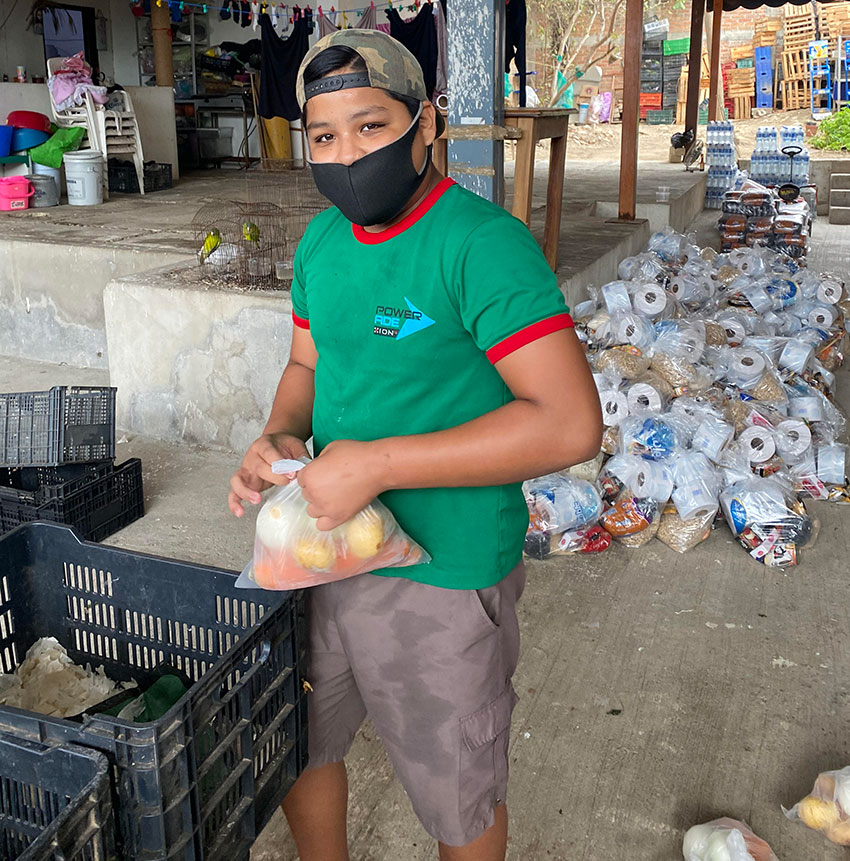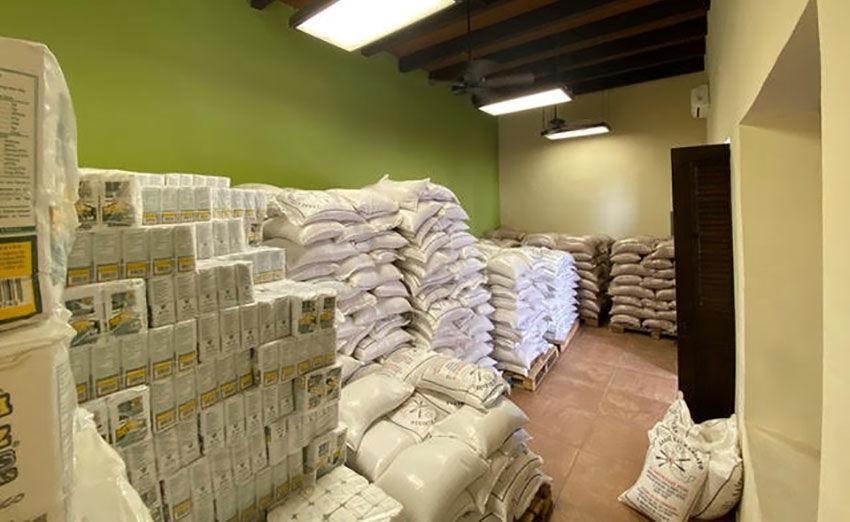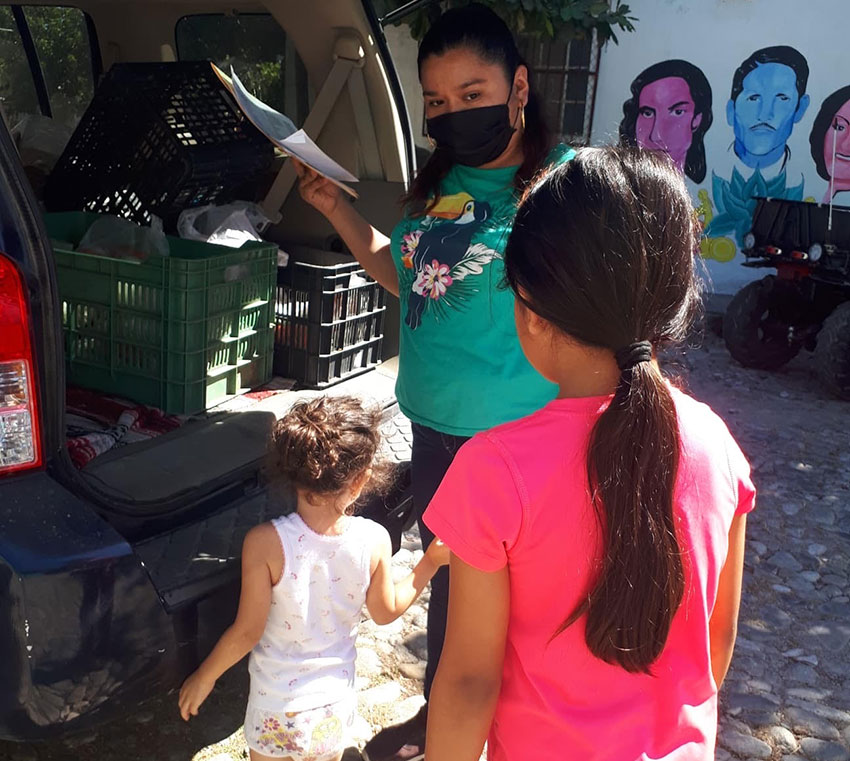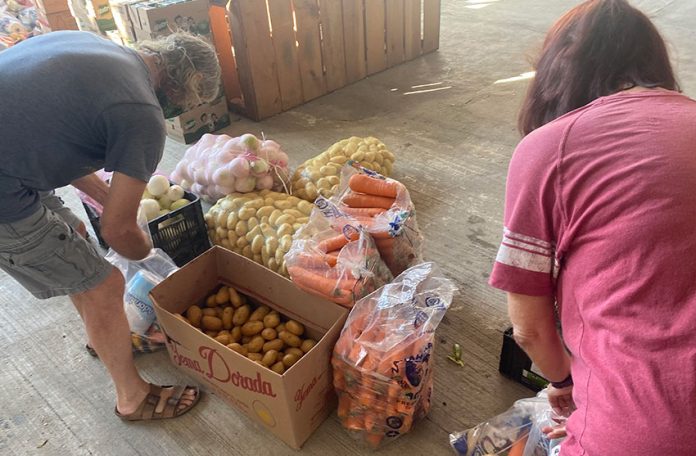As Mexico endures a third month of Covid-19 shutdowns, new charitable initiatives have been emerging as expat communities seek to help their Mexican neighbors who are struggling with the effects of unemployment and food insecurity.
Shutting down economic activity across the country, including the closing of beach destinations and Pueblos Mágicos (Magical Towns), has dealt a hard economic blow to workers.
“It kept the virus out of our area, but it really killed people’s ability to earn money,” says Tim Fisher of La Cruz de Huanacaxtle, a village in Bahía de Banderas, Nayarit, where many residents have been lured to the area by tourism jobs. Fisher and about 35 others formed La Cruz Food Pantry to help families left without income by the shutdowns.
The group, which works with a local grocer to buy the food and with teachers and neighborhood leaders to identify the needy, began feeding 50 families a week, and has quickly expanded to 350.
Slightly northward, in Peñita de Jaltemba, the local Rotary Club began fundraising in early April soon after shutdowns occurred. It has contributed 100,000 pesos (US $4,400) to a chain of 10 community kitchens and has partnered with other local organizations providing food, said Rotarian Eddie Dominguez, an expat and local restaurateur.

Rotary is also providing weekly despensas of food staples and toilet paper, disinfectant, and detergent to the area’s 1,500 or so beach vendors, who under normal circumstances live on the economic edge, said club member Vern “Benito” Porter.
When the town of Álamos, a Pueblos Mágico in Sonora, completely shut its borders and installed a 10:00 p.m. curfew, Jim Swickard, owner of a boutique resort, connected with local colleagues who were also worried locals had been hit with a double whammy: work stoppages at over 20 hotels and local restaurants, as well as the recent temporary closure of the Piedras de Verde mine due to low copper prices.
“Suddenly, instead of hundreds [of residents] needing food supplies, the number went into the thousands,” Swickard said.
So in early April the newly formed Álamos Food Drive, with support from residents and local businesses, began buying weekly supplies of beans, rice, and tortilla flour to supplement existing food distribution by the DIF family services agency, delivering 3,000–4,500 food packages weekly. The food drive is also receiving funds from SOS, a U.S.-based charity.
In San Miguel de Allende, Guanajuato, an existing NGO that for years has fed poor children hot breakfasts and lunches daily in 36 institutional kitchens it built in their schools had to completely rethink its logistics once schools throughout Mexico closed and it found itself with a warehouse full of food.
“We thought, ‘Wow, we have food, and people are going hungry. Is there any way we can still get these staples out to the community?’” said Joan Nagelkirk, a Feed the Hungry trustee who is in charge of strategic planning.

The organization now spends US $92,000 more per month to feed students’ entire families, using the schools as community drop-off points for 12-kilo, nonperishable food packages that families cook themselves. Providing food for approximately 4,000 families requires purchasing, packing, and distributing an average of five tonnes of food per day, according to Nagelkirk.
While the country prepares to reopen, back to normal does not mean instant recovery, especially for tourist havens. According to its government website, Álamos does not yet have a set reopening date due to concerns about new Covid cases in surrounding areas. Swickard said Álamos Food Drive will distribute food indefinitely.
Meanwhile, Nayarit is likely to open its hotels June 15, but the question on everyone’s mind is, “Will anyone come?” Porter said.
In La Cruz de Huanacaxtle, shutdowns couldn’t have come at a worse time for tourism workers, Fisher notes.
“These last two months before the rainy season in June, July and August are the time when people are usually trying to put aside money for what’s called ‘SeptieHambre,’ [a play on the words septiembre and hambre, or September and hunger], when tourists have already left and people are trying to stretch their money through September until the snowbirds return [in October],” he said.
They currently have no plans to stop distribution, and already volunteers in the group have spun off separate groups to raise money for other needs like pet food, propane, and face masks, Fisher said.

Social distancing rules that will take effect when San Miguel’s schools reopen present a challenge to Feed the Hungry’s model of feeding children hot meals, says Nagelkirk, because only half the children could be attending school on any given day, so it may have to continue its community distribution.
But she’s optimistic about the way the upheaval connected the organization in new ways with the city, which provided larger delivery vehicles and help from DIF staffers to pack food.
“It was such a high level of cooperation with the city, it has raised awareness of how we can help each other meet the community’s needs in the future.”
Mexico News Daily
